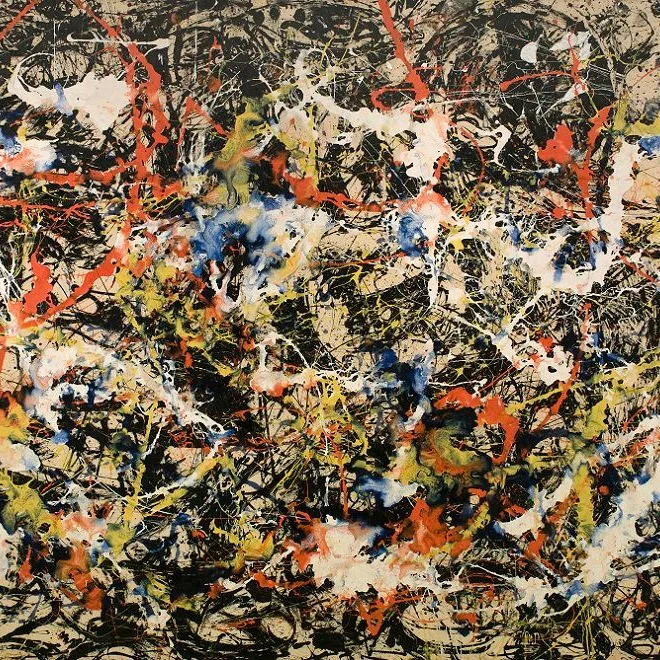With his Discourse on Method (1637), Descartes turned on their head certain basic assumptions that had dominated the Medieval mindset, and ushered in a new era of philosophical inquiry.
Hegel and the German Idealists
At the turn of the 19th century, a group of German philosophers would take changes in epistemology set in motion by Immanuel Kant, and lay them at the foundation of a bold new way of doing metaphysics. These were the so-called Idealists.
Ars Nova: The Music of the Fourteenth Century
The fourteenth century has been dubbed the calamitous’. And in a political sense, this position is justifiable. Yet a focus on its calamities might blind the reader to some of its musical triumphs.
Dante and Petrarch: Last of the old, first of the new
Less than a decade separates two of the grandest literary masterworks of the Italian Trecento: Dante's Divine Comedy and Petrarch's Canzoniere. And yet a yawning aesthetic chasm that divides them.
Mirandola's Renaissance Manifesto
Florentine philosopher, Pico della Mirandola’s Oration on the Dignity of Man has been called the ‘Manifesto of the Renaissance’ – and for good reason. To fifteenth-century readers, it would have seemed titillatingly, even dangerously humanistic.
Medieval Music: Ars Antiqua
The history of Medieval music is one of remarkable uniformity. From the earliest notations of the ninth century to the Ars Antiqua of the thirteenth, music in the West progressed at such a slow pace, that the works dating from the end of this period are distinguishable from those at its beginning only by a few minor stylistic and technical advances.
Arthurian Journeys: Lancelot and Sir Gawain
Characters in the great medieval poems are markedly lacking in psychological nuance, to be sure. Yet to say that the medieval author was indifferent to the inner journeys of his characters is to be mistaken - as we shall see in the tales of Sir Gawain and Lancelot.
Piers Ploughman & Medieval Christian Morality
The fourteenth-century allegorical poem by William Langland is pegged, by most scholars, as a fierce indictment against ecclesiastical corruption - and that indeed it surely is. But heed must be paid to not endow the work with humanistic and liberal connotations it doesn’t possess.
Tales of Courtly Love: Marie de France's Lais
The Lais of twelfth-century poetess Marie de France may depict grand and, to modern minds, exaggerated romantic gestures, but grandiloquent as they can be, Marie’s short tales of courtly romance provide some surprisingly profound insights into the nature of love.
Logos: Mind of God
The impact of the slippery Greek term ‘Logos’ on Medieval philosophy is so immense, that any competent analysis of Christian doctrine is now impossible without a thorough understanding of it.
Augustine's City of God
When Rome was sacked by the Visigoths in CE 410, Saint Augustine of Hippo could hardly have imagined that the event would inspire some of his most enduring contributions to medieval philosophy.
Gustav Mahler, The Double Man
For some, he was a God, for others, a tyrant. He was loved and loathed in equal measure, and often for the same reasons. So who was Gustav Mahler? And can we get to the bottom of this double man?
Postmodernism: Triumph of the Absurd
Having identified as risible attempts to forcibly assert Truth by means of hard-lined aesthetic dogma, the Postmodernist reacted by withdrawing from the world, and then bursting into uncontrollable laughter over the hopeless mess of it.
High Modernism: Death of Beauty
Without necessarily knowing it, all major Modernist artists from Schönberg to Cage, from Picasso to Pollock, had systematically broken down Beauty. By the time the Fluxus artists rose to prominence in the ‘60s, Beauty as we’d known it for five hundred years was no more.
Modernism: Rise of the 'man-god'
If there was no god, so be it – the Modernist didn’t him anyway. Just as he’d killed god and overturned all Truth and Meaning he’d once bestowed, the man-god would now turn his attention to Art and bring to bear on it the full force of his newfound omnipotence.
Enlightenment: 'Humanising' the Arts
As the eighteenth-century rolled on, god’s divine light grew dimmer and the light of man’s reason, brighter. It was the beginning of a self-referential, human-derived and human-validated moral order. It was the beginning of the Enlightenment.
Twentieth-Century Nihilism: Death of God
‘God is dead’, to Nietzsche, meant ‘god is irrelevant’ (which, needless to say, wouldn’t have had the same ring to it). Given the philosopher’s strong atheistic bent, it doubtless also meant ‘god never existed at all’.
Romanticism: The Artist Hero
After Beethoven, it would no longer be acceptable for any serious artist to speak the same stylistic language as his influences. ‘Originality’ quickly diffused itself and became the norm. All artists working subsequently have operated within this paradigm. This is the Romantic legacy.
Age of Reason
By what means does knowledge enter our awareness? How can we be certain of the truth of the ideas we possess? It would be the task of the Enlightenment to address these queries; to dissect man’s inner spark, understand it, and give it its proper name: Reason.
Renaissance: Birth of Modern Man
In the mid to late fifteenth century, there began to be felt, in Europe, a shift in our way of seeing the world so far-reaching in its implications, that it has since been deemed as marking the dawn of modernity. It is known by the name Renaissance, or ‘rebirth’.



















